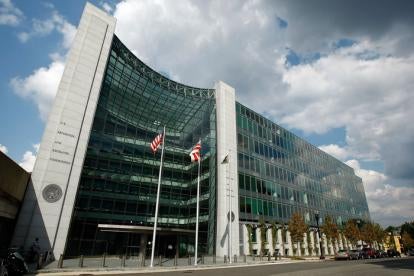On March 29, 2016, SEC Chair Mary Jo White delivered the keynote address at the Mutual Fund Directors Forum 2016 Policy Conference. In her remarks, Chair White shared her views on how directors should approach their role in 2016 and emphasized the important role that directors play in protecting investors. Chair White also noted certain questions and considerations that she expected mutual fund directors to be thinking about in the course of exercising their responsibilities. Some of the questions and considerations that Chair White recommended are as follows:
On Operational Risk:
Directors should consider and ask questions about:
-
how a fund’s—and its service providers’—compliance policies and procedures, business continuity plans and back-up systems address recent market and industry events (e.g., the SunGard U.S. InvestOne System outage that affected BNY Mellon’s fund accounting services; the suspension of redemptions by the Third A venue Focused Credit Fund);
-
whether similar events could happen at their fund, how to prevent them from happening and how to respond promptly and effectively if they do occur;
-
the back-up systems and redundancies of the critical service providers that value the fund, keep track of fund holdings and transactions, and strike NAVs; and
-
whether fund management has considered specific alternate systems or work-arounds that may be necessary to continue operations or manage through potential business disruptions.
On Liquidity Risk:
Directors should consider and ask questions about:
-
whether a fund’s investments are appropriately aligned with their anticipated liquidity needs and redemption obligations;
-
the quality of the information that management provides to the board on liquidity, the frequency with which management reports to the board on liquidity and how management monitors and manages liquidity risk;
-
whether the directors understand any links that may exist between liquidity and valuation with respect to funds they oversee and whether directors are appropriately focused on funds with strategies that may be more likely to face liquidity challenges; and
-
whether an open-end fund’s investments and investment strategy are appropriate for a fund offering daily redemptions.
On Cybersecurity:
Directors should consider:
-
the range of risks posed to a fund’s computer networks, noting that it is incumbent upon funds and their advisers to employ robust, state-of-the-art prevention, detection, and response plans, and incumbent on independent directors to consider whether funds, advisers and other key service providers are taking the appropriate steps to do so; and
-
recent SEC staff guidance on cybersecurity, which encourages funds to assess their ability to prevent, detect and respond to cyberattacks, and details a number of measures funds may wish to consider.
On Board Composition and Diligence:
Noting that boards “should also think more broadly about the emerging problems of tomorrow and what issues they may be missing,” Chair White also advised directors to consider:
-
whether the current composition of their boards includes individuals with the necessary skills, experience and expertise and whether to hire subject matter experts as consultants to the board; and
-
a fund’s risks and to ask the difficult questions, not only in cases of something suspicious or problematic, but also when directors simply do not understand the information they have received.
Oversight vs. Day-to-Day Management:
Notwithstanding the foregoing recommendations to directors and emphasis on their critical role in representing the interests of investors, Chair White acknowledged that regulators must “avoid completely overloading directors with additional responsibilities, or confusing strong oversight with the management of a fund.” In this regard, she noted that the role of the board is to provide independent oversight of the administration of fund compliance policies and procedures and other critical functions and to approve compliance policies and procedures, but not to perform them. However, Chair White also acknowledged that recent rule proposals for the fund industry and regulatory focus areas, including with respect to liquidity risk management reforms, the use of derivatives and distribution-in-guise, include several requirements for or expectations of a fund’s board. On this point, Chair White stated that the board’s oversight function and how directors can best serve as gatekeepers will remain a key focus for the SEC, adding that she welcomes director input to help the SEC “strike an appropriate balance for the board’s oversight role.”
Enforcement Perspective on Fund Directors:
Chair White emphasized that directors’ judgments made in good faith based on responsibly performing their duties will not be second guessed by the SEC. In contrast, directors who fail to perform their duties “should expect action to punish and deter such conduct.” Chair White cited two enforcement actions to illustrate instances in which directors fell short:
-
In the first enforcement action, directors did not, as required, approve any fair valuation methodology or continuously review the application of an approved methodology. Instead, the directors delegated this responsibility to a valuation committee of the investment adviser to the funds without setting any parameters or reviewing the committee’s work; and1
-
In the second enforcement action, directors did not receive certain materials they had specifically requested from the adviser in connection with contract review, failed to follow up, and did not seek to clarify the incomplete, unclear and inaccurate information that they did receive. The directors nevertheless acted without this critical information and approved the advisory contracts, thereby breaching their obligations to shareholders and the funds.2
Chair White’s takeaway from these cases is that directors should carefully review the materials they receive, ask questions instead of rubber-stamping management recommendations, investigate potential inaccuracies, and follow up on unfulfilled requests.
The text of Chair White’s speech is available at: https://www.sec.gov/news/speech/chair-white-mutual-fund-directors-forum-3-29-16.html.
1 In the Matter of J. Kenneth Alderman, et al., Release No. IC-30557 (Jun. 13, 2013), available at https://www.sec.gov/litigation/admin/2013/ic-30557.pdf.
2 In the Matter of Commonwealth Capital Management, LLC, et al., Release No. IC-31678 (June 17, 2015), available at https://www.sec.gov/litigation/admin/2015/ic-31678.pdf.


 i
i


